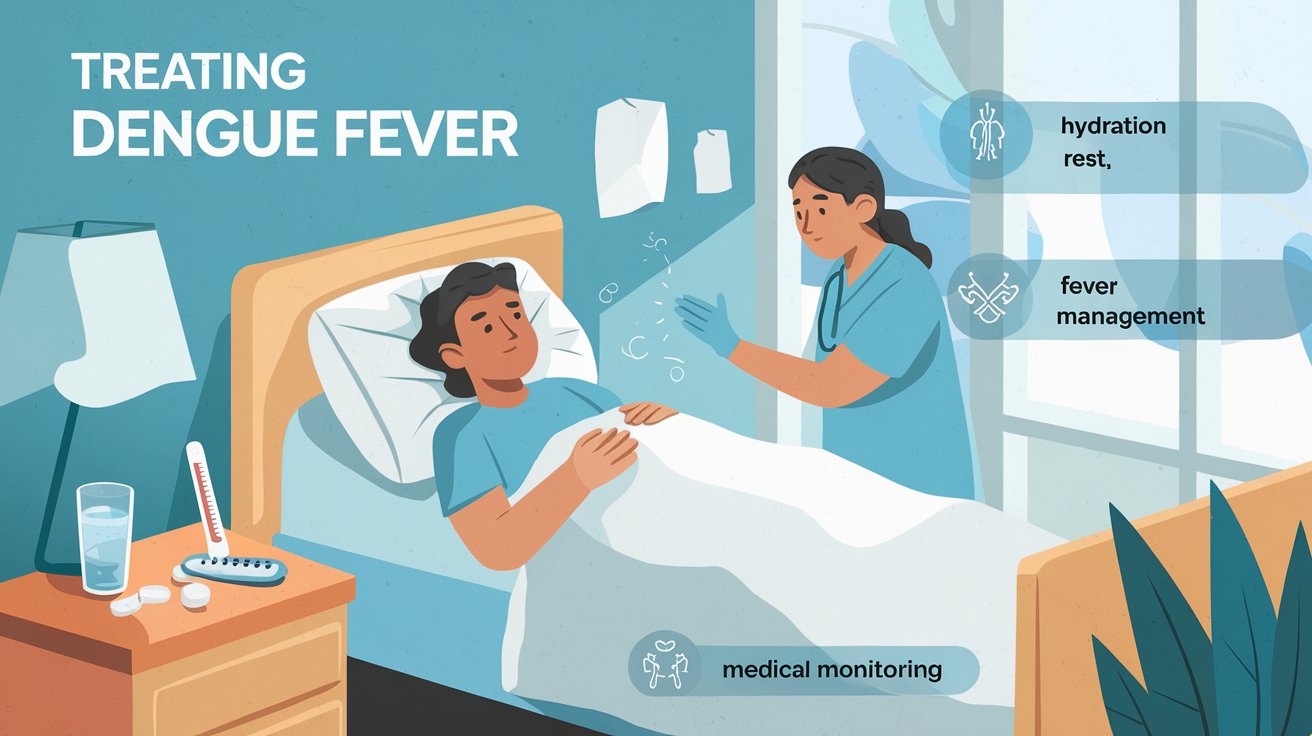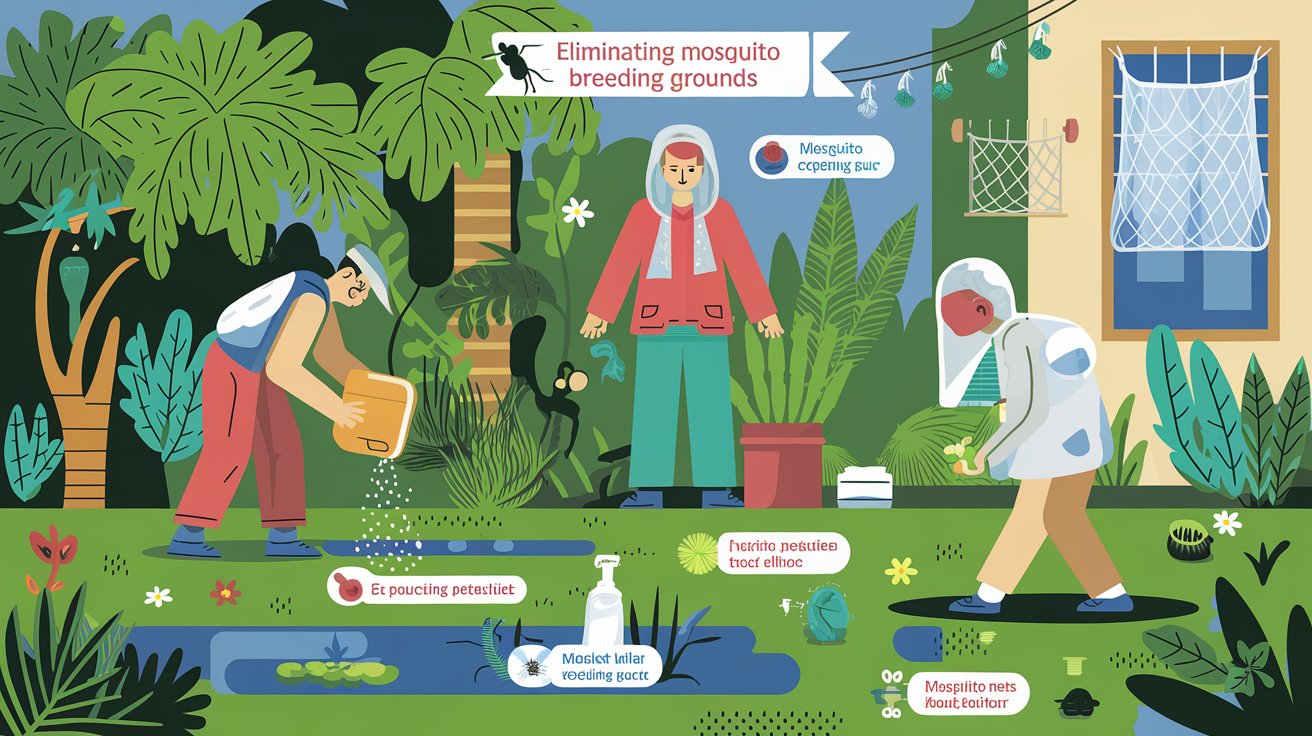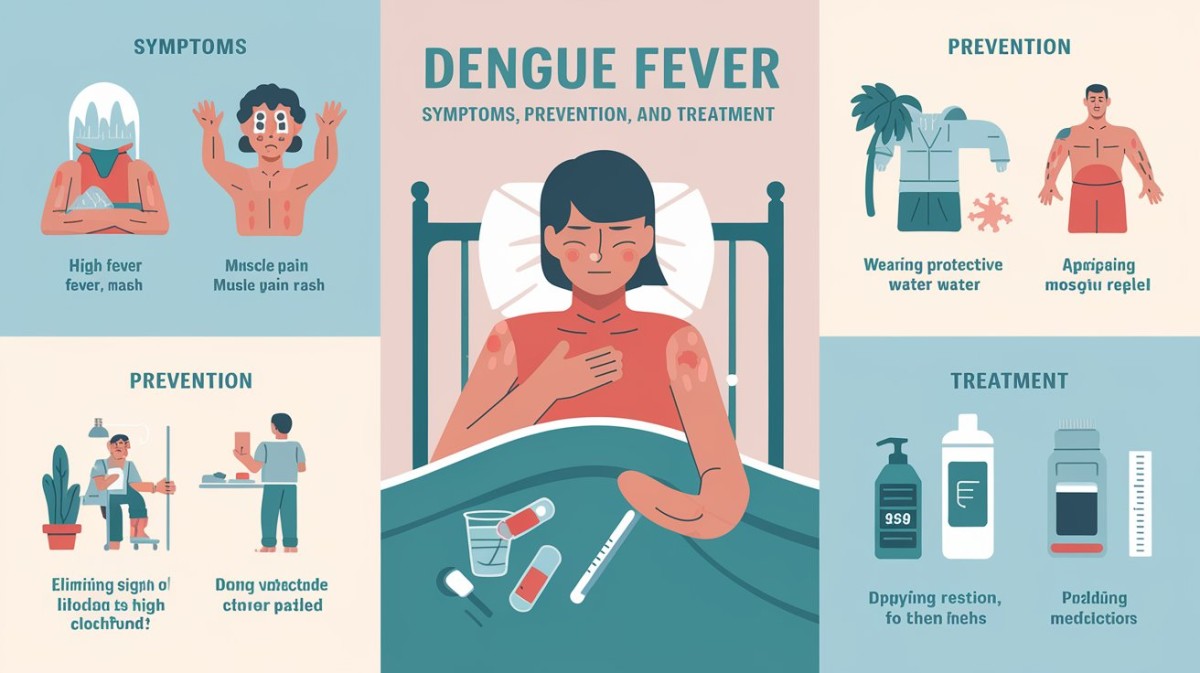Although millions of people are infected with dengue fever all over the world every year, this disease is still one of the most common and dangerous illnesses transmitted through mosquitoes. Widespread and characterized by rapid onset and short duration followed by profound effects on human health, dengue. But knowing about how it spreads, how to identify it, and how it can be stopped and treated is a key step to safeguarding ourselves and our society.
What is Dengue Fever?
Dengue fever is an infectious disease caused by the dengue virus, which is primarily spread by the Aedes aegypti mosquito. There are four types of dengue viruses (DENV-1, DENV-2, DENV-3, and DENV-4). This means that people can get dengue fever multiple times, though subsequent infections are often more severe. While most cases are mild, severe dengue (also known as dengue hemorrhagic fever) can be life-threatening if not managed promptly.
How Does Dengue Spread?
Dengue is passed from an infected person from an infected Aedes mosquito commonly active in the daytime through bites. The albopictus Aedes aegypti mosquito thrives in tropical and subtropical regions, projecting high-risk; increasing in densely populated regions as monsoon seasons are ideal since every collection of water provides breeding grounds.
Common Symptoms of Dengue Fever

Most individuals develop signs of the disease 4 to 10 days after a mosquito has bitten them and can be mild or severe. Here’s what to watch out for:
1. High Fever: One of the first signs of a sudden fever that may reach 104°F (40°C) is also reported.
2. Severe Headache: Particularly around the eyes.
3. Muscle and Joint Pain: As a result, when in fruition, it is traditionally known as “breakbone fever.”
4. Nausea and Vomiting: These are usual signs and symptoms and may lead to further dehydration.
5. Skin Rash: This fever is more often accompanied by rash which typically occurs two to five days after rash begins to develop.
6. Fatigue: Fatigue may remain an issue for quite some time after the recovery has been completed.
7. Pain Behind the Eyes: Joint pain and typically referred to as a moderate to sharp pain.
Diagnosing Dengue
If dengue is diagnosed early enough, then it can be treated effectively. Dengue can be diagnosed using blood tests to test for the presence of the virus or antibodies to dengue. There is a need to consult a doctor if any of the dengue symptoms are known in order to prevent complications.
How to Treat Dengue Fever

Unfortunately, up till this present time there is still no cure for dengue virus or any specified antiviral treatment. Instead, supportive care is the primary treatment approach:
1. Hydration: Drinking a lot of fluids is important, because dengue fever may cause the body to lose fluids. ORS is effective and helpful, which is very important for the patients suffering from vomiting and diarrhea.
2. Fever Management: Paracetamol can help lower fever and reduce pain, but avoid nonsteroidal anti-inflammatory drugs (NSAIDs) like ibuprofen or aspirin, as they can increase the risk of bleeding.
3. Rest: Symptoms can be managed more effectively if there is enough rest.
4. Monitoring Platelet Levels: This can even require daily check-ups for severe cases, because low level of platelets can lead to bleeding complications.
In some case when the situation worsens they undergo tests and are often hospitalized and given IV fluids, blood transfusion or put on close monitor.
Preventing Dengue Fever

The best course with dengue is prevention, primarily based on the fact that there is no effective vaccine that has been developed for all ages to date. Here are some effective ways to reduce the risk:
1. Eliminate Mosquito Breeding Sites:
❖ Examples include tires, flower pots, buckets, and containers; especially, ensure you empty, cover or discard items that hold water frequently.
❖ Recommended that clean storage tanks containing water at least once per every week.
2. Use Mosquito Nets and Screens: Babies and the elderly should be put in a mosquito net since it will help minimize the bites.
3. Wear Protective Clothing: Long sleeve shirt, long trousers, and socks are something like an additional barrier for virus.
4. Apply Mosquito Repellent: Apply oil-repellent insecticides with the Environmental Protection Agency registration number to the exposed parts of the skin most at night or during other fly times.
Install Mosquito Traps: Traps which capture mosquitoes and those which lure them in can be used in reducing the population of the mosquitoes both inside homes and outside.
Dengue Vaccine Update
The World Health Organization (WHO) has approved an injective vaccine called Dengvaxia for individuals in the 9-45 years group of age domiciling in endemic areas with prior history of dengue fever. However, it cannot be used in people who have never been infected by dengue because it amplifies the risk of developing severe symptoms if administered without first exposure. The search for other vaccines is being conducted, with the need of obtaining wider and more safe immunity in the future.
The Importance of Early Detection and Community Awareness
The challenge is that people must know how to prevent dengue fever. People need to know the possible symptoms, ways to prevent the spreading of the diseases, and when to go for screening. Bureaus of public health and health care institutions all over the world carry out awareness drives especially during seasons. Efforts made by community to clear any stagnant water and various barriers in the form of mosquito repellent measures can greatly reduce incidence of dengue cases.
Myth-Busting Dengue Fever
Let’s address some common myths around dengue:
❖ Myth: They further mentioned that while only children and the elderly get severe dengue.
❖ Fact: That being the case, while these groups are at greater risk, anyone can get severe dengue.
❖ Myth: You can only get dengue once.
❖ Fact: It is actually a four seropidemic virus and many people think when you get dengue, it is for lifetime but you can get it up to four times.
❖ Myth: It has also been established that drinking papaya leaf juice can cure dengue.
❖ Fact: The consumption of this papaya leaf extract can surely improve the platelet count but that is not a cure.
What to Do if You Suspect Dengue Fever
If you or a loved one shows symptoms of dengue, it’s essential to:
❖ Seek Medical Advice: That is why currently it has been proven that complications can be prevented if diagnosed early.
❖ Avoid NSAIDs: Pain and fever should be treated with paracetamol only.
❖ Rest and Hydrate: In helping your body go through this process, make sure to take a lot of water and give your body time to rest.
For more such related content read our blogs on Treatments.
Conclusion: Preventing Dengue Flare Ups
Dengue is not a disease that cannot be prevented, and therefore with the necessary preventive measures we can avoid it. The only ways through which people can protect themselves against dengue are: knowledge and when one has the mild signs to report to the hospital. As health organizations around the world continue to strive for the development of better vaccines and increased universal knowledge of the disease, there is definite possibility of minimizing the effects of dengue on the global population.
I am documenting that through using insect repellent, its control and practicing on personal hygiene as well as enlightening the public we can avoid incidences of dengue and protect our loved ones. Always keep updated, always be alert and Always ensure the health of the community to fight this ever relapsing disease.

